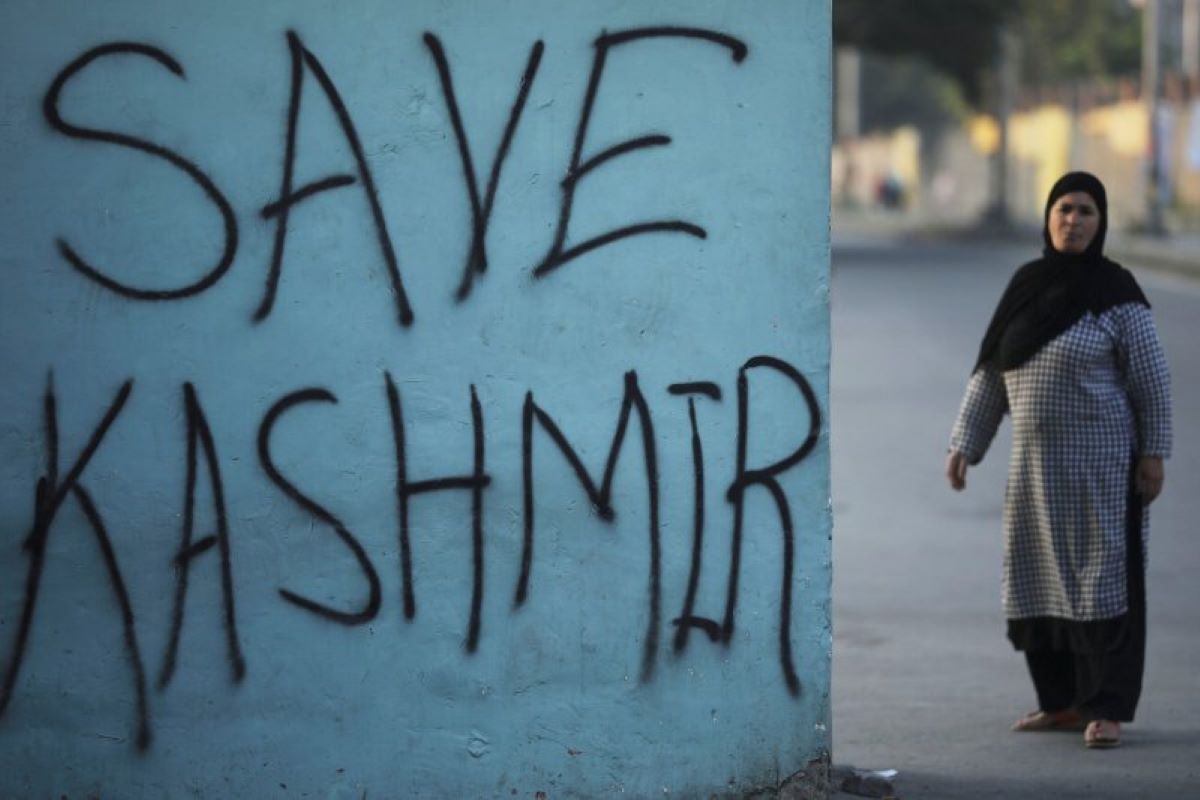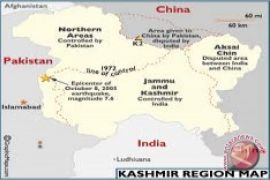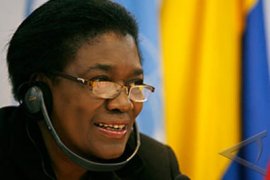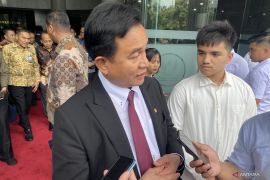The day was also observed to show support for their Kashmiri brothers and sisters.
The government of Pakistan has called for a settlement of the Jammu and Kashmir conflict in accordance with the pertinent UN Security Council (UNSC) Resolutions and the wishes of the Kashmiri people.
Pakistan has also described India's unlawful activities on and since August 5, 2019, as an attempt to make Kashmiris a marginalized and powerless minority in their own country.
In a statement, the country's Foreign Office spokesperson said that Kashmiris "have also underscored that India's unlawful actions on and since August 5, 2019, are aimed at turning the Kashmiris into a marginalized and disempowered minority in their own land."
To apprise them of recent developments in IIOJK, Pakistan's foreign minister has written letters to the presidents of the United Nations General Assembly and UNSC, UN Secretary-General, UN High Commissioner for Human Rights, and OIC Secretary General.
In order to give the people of Jammu and Kashmir the power to decide their own future, the foreign minister has called for the implementation of the pertinent UNSC resolutions in his letters.
He has demanded that the UN oversee an investigation into the state of human rights in IIOJK.
Meanwhile, the general secretariat of the Organisation of Islamic Cooperation (OIC) has reiterated its call for the revocation of all illegal measures initiated on and after August 5, 2019, which have been aimed at changing the demographic structure of the disputed territory of Indian illegally Occupied Jammu and Kashmir.
In a press statement, the OIC Secretariat in Jeddah has also reaffirmed its solidarity with the people of Jammu and Kashmir in their quest for the right of self-determination.
The organization has expressed concern over the situation in the Indian Illegally Occupied Jammu and Kashmir, four years after the unilateral alteration of the internationally recognized status of the territory.
"Furthermore, the general secretariat refers to the decisions and resolutions of the Islamic Summit and the OIC Council of Foreign Ministers on Jammu and Kashmir, to call for the immediate cessation of human rights violations in Jammu and Kashmir," it has added.
The general secretariat has also reiterated its call to the international community to enhance efforts to resolve the issue of Jammu and Kashmir in accordance with the relevant UNSC resolutions.
Jammu and Kashmir Dispute
The UNSC has been discussing the Jammu and Kashmir dispute since 1948, making it the oldest unresolved international crisis in history.
Numerous resolutions adopted by the UNSC have recognized the Kashmiris' legitimate right to self-determination.
To deny this right, the Indian government has deployed more than 900 thousand soldiers, making Indian Illegally Occupied Jammu and Kashmir (IIOJK) the most militarized region on earth.
According to a political observer from Pakistan, Naem Masod, India declared Articles 370 and 35A of the Indian Constitution unconstitutional on August 5, 2019, as part of an effort to change the demographic makeup of the region,
The Indian Government has also adopted illegitimate citizenship laws in an effort to change the demographics of the disputed region, further its "Hindutva" agenda, and sustain its illegal annexation of IIOJK.
According to estimates, India has issued more than 4.2 million residence permits to Hindus from areas outside the IIOJK territory.
The Union Territory of Jammu and Kashmir Reorganization (Adaptation of Central Laws) Third Order, 2020, also outlines new land laws that permit "citizens of India" to buy non-agricultural land in IIOJK without ever having residence there.
The new citizenship law threatens the economic chances of native Kashmiris while undermining their religious, linguistic, and cultural identities.
India's illegal and unilateral acts on August 5, 2019, were a blatant violation of international law, specifically the Fourth Geneva Convention, and UNSC resolutions.
They have resulted in an unprecedented military blockade and restrictions on the fundamental rights and freedoms of the Kashmiri people.
The Kashmiri leadership is still being detained on false accusations. Executions without due process, arbitrary detentions, and arrests have continued to occur, Masod said.
The practice of Indian occupation forces killing Kashmiri children in fake "encounters" and "cordon and search" operations has become almost routine in IIOJK.
Thousands of people have been held without charges or due process, including children. Arrests of Kashmiri youngsters are also taking place indiscriminately.
A slew of draconian legislations, including the Public Safety Act (PSA), the Armed Forces Special Powers Act (AFSPA), and the Unlawful Activities Prevention Act (UAPA), have made these measures legal.
Since August 5, 2019, more than 519 Kashmiris have been killed by Indian occupation forces during detention, false encounters, or staged cordon and search operations.
A total of 584 people have been injured by pellet guns, with some losing their eyesight.
Even the dead bodies of those killed in fake encounters are not being handed over to their families for burial. Pakistan has constantly been emphasizing that the Indian occupation troops' gross and systemic abuses of human rights necessitate an investigation by a United Nations Commission of Inquiry (COI), as recommended by the OHCHR in its 2018 and 2019 reports.
The government of Pakistan released a dossier on the Indian occupation forces' human rights abuse, war crimes, and crimes against humanity in the IIOJK on September 12, 2021.
The 113 references used in the 131-page document are mostly from foreign or Indian sources.
The Indian government and occupying forces in IIOJK have been found to have committed serious human rights violations, according to Amnesty International's State of the World's Human Rights report for 2020–2021.
Since August 5, 2019, the people of IIOJK have experienced severe human rights violations and economic hardship. The scenario has serious implications for the region's long-term security and peace in South Asia.
Pakistan has insisted that the achievement of lasting peace and security is dependent on India and Pakistan reaching a diplomatic agreement to resolve all outstanding issues, including the main dispute over Jammu and Kashmir, in accordance with international law and the wishes of the Kashmiri people.
A cease-fire agreement signed on February 25, 2021, is in line with Pakistan's dedication to upholding the status quo and easing the suffering of Kashmiris who reside along the Line of Control (LoC).
While Pakistan has continued to be dedicated to peace, India's illegal and unilateral actions on August 5, 2019, have irreparably damaged the atmosphere.
Thus, the onus is on India to foster an environment conducive to meaningful engagement. Pakistan’s ultimate goal remains a just resolution of the Jammu and Kashmir dispute in accordance with relevant UNSC resolutions and the wishes of the Kashmiri people.
Related news: Reaffirming full solidarity with the people of Jammu and Kashmir
Related news: Jammu and Kashmir recognized UNSC dispute: researcher
Editor: Rahmad Nasution
Copyright © ANTARA 2023







